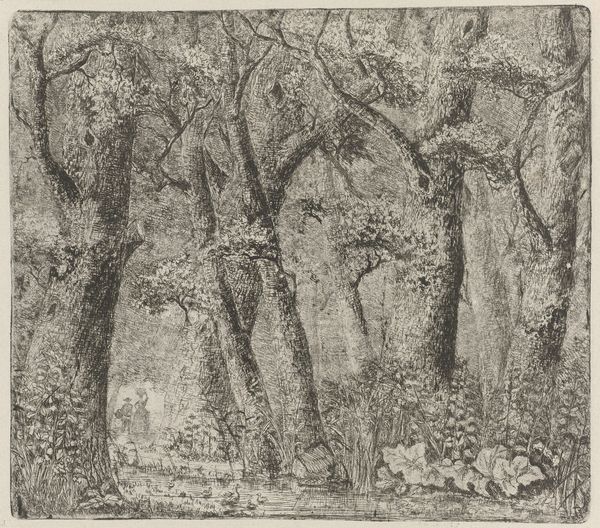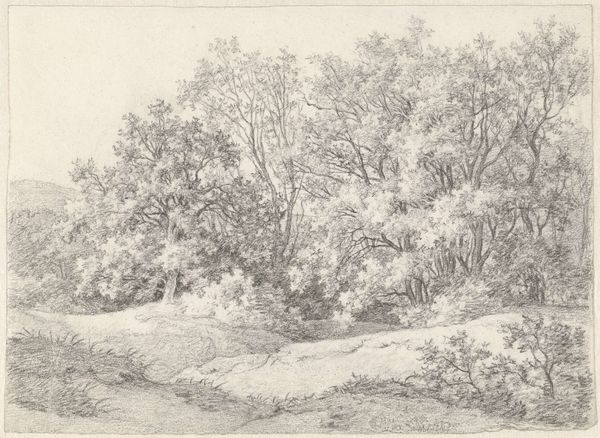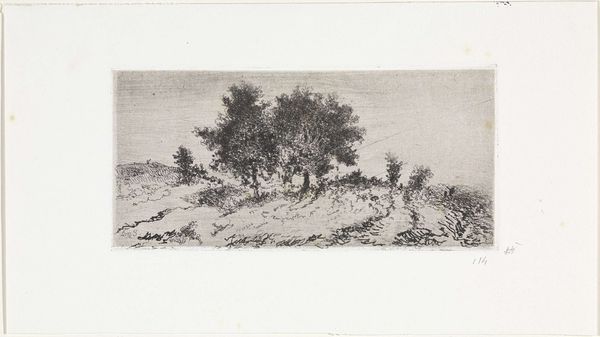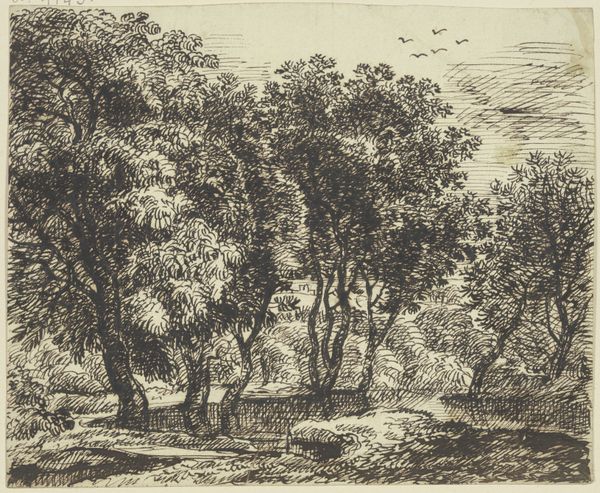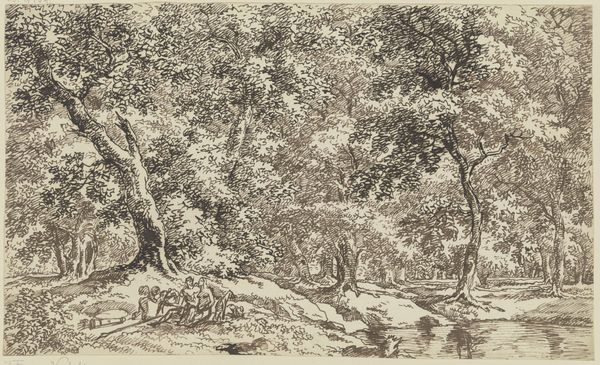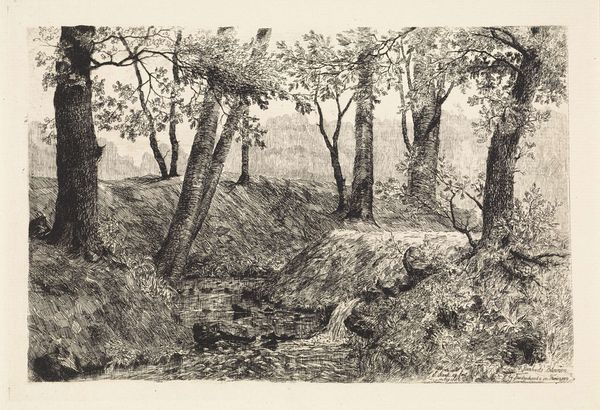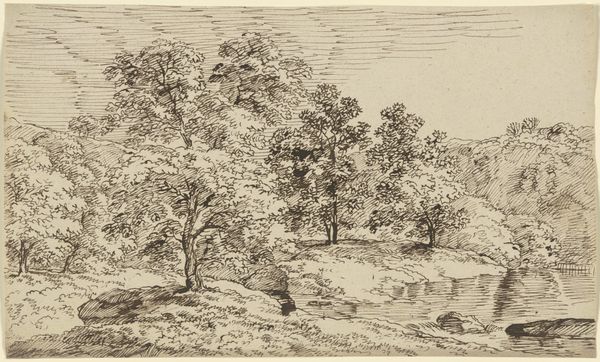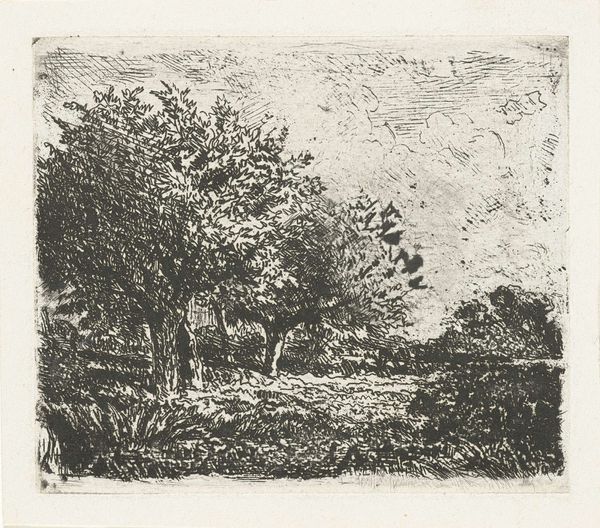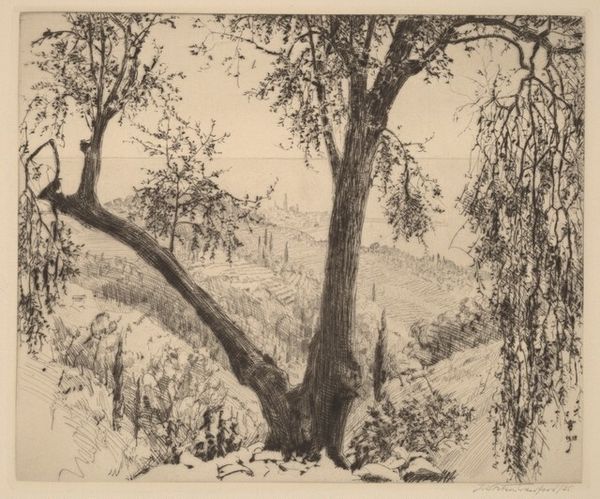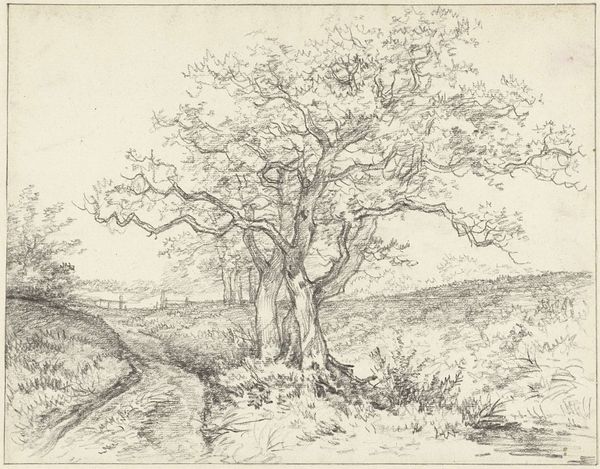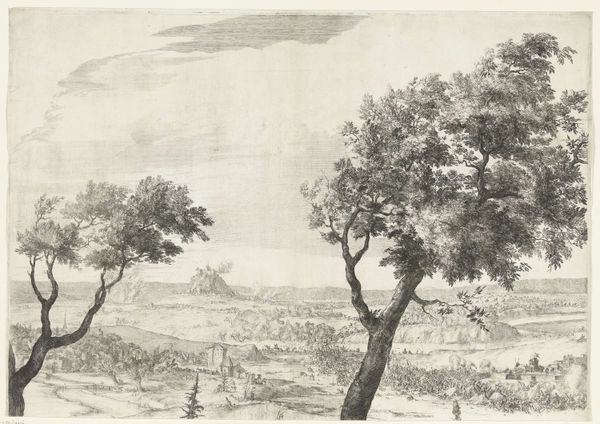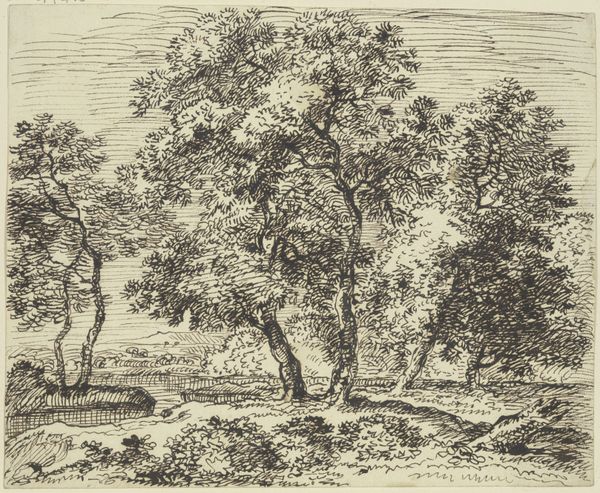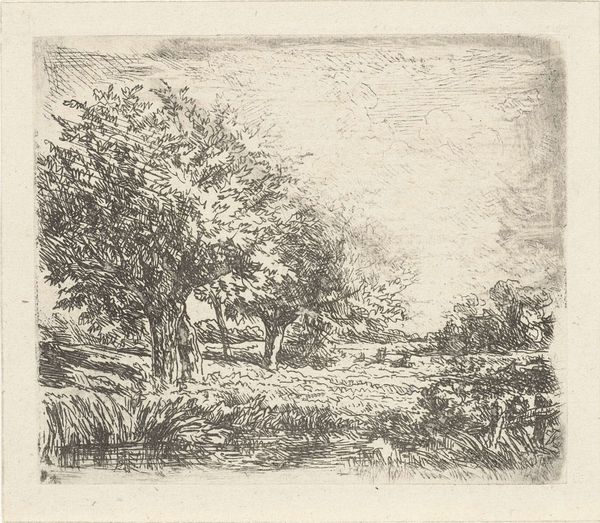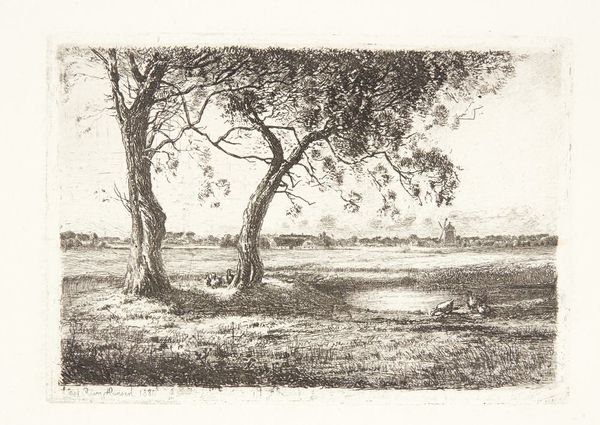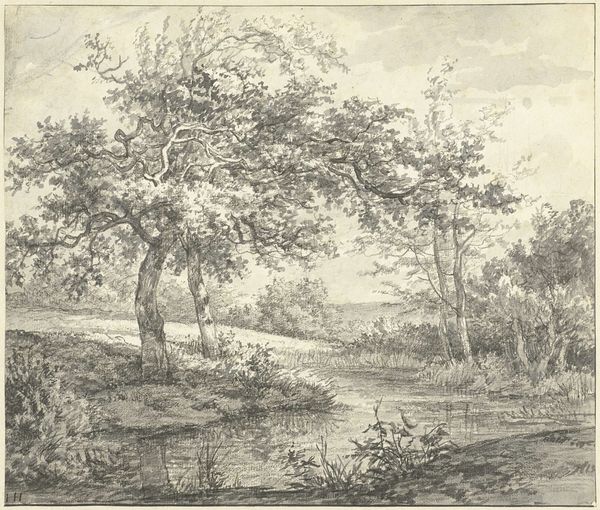
Copyright: Public domain
This still life was created by William Henry Hunt, likely in the mid-19th century, using watercolor and gouache. These were the workhorse media of the era, favored for their portability and relative ease of use, and often considered less serious than oil paint. Look closely at the way Hunt has built up the image. He applies the paint in small, controlled strokes, a labor-intensive process that gives the apples and mossy background a palpable sense of texture. The watercolor allows light to reflect from the white paper beneath, giving a luminous quality, while the opaque gouache adds depth and density to the shadows. The artist's engagement with these humble materials and everyday subjects challenges the traditional hierarchy of art, where grand historical paintings were prized above all else. In Hunt's work, we see a celebration of the ordinary, elevated through careful observation and skillful execution. His detailed approach underscores the value of craft, reminding us that even the simplest subjects can be worthy of our attention.
Comments
No comments
Be the first to comment and join the conversation on the ultimate creative platform.
